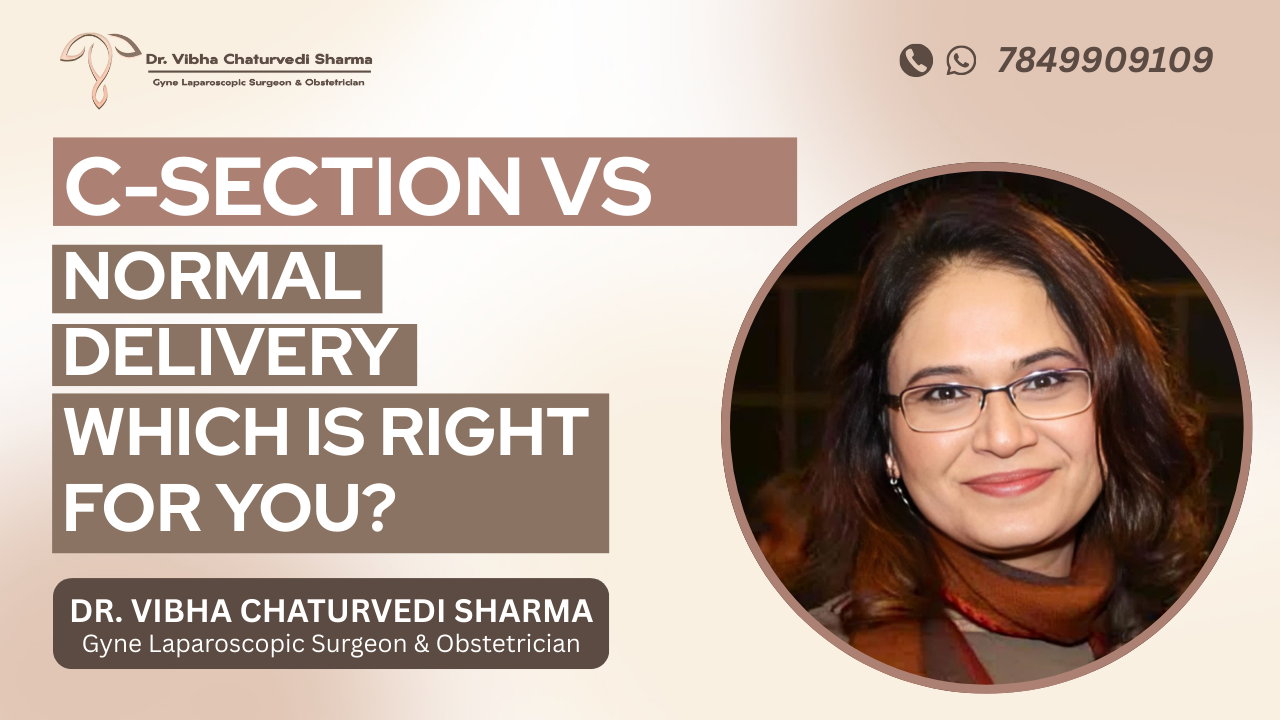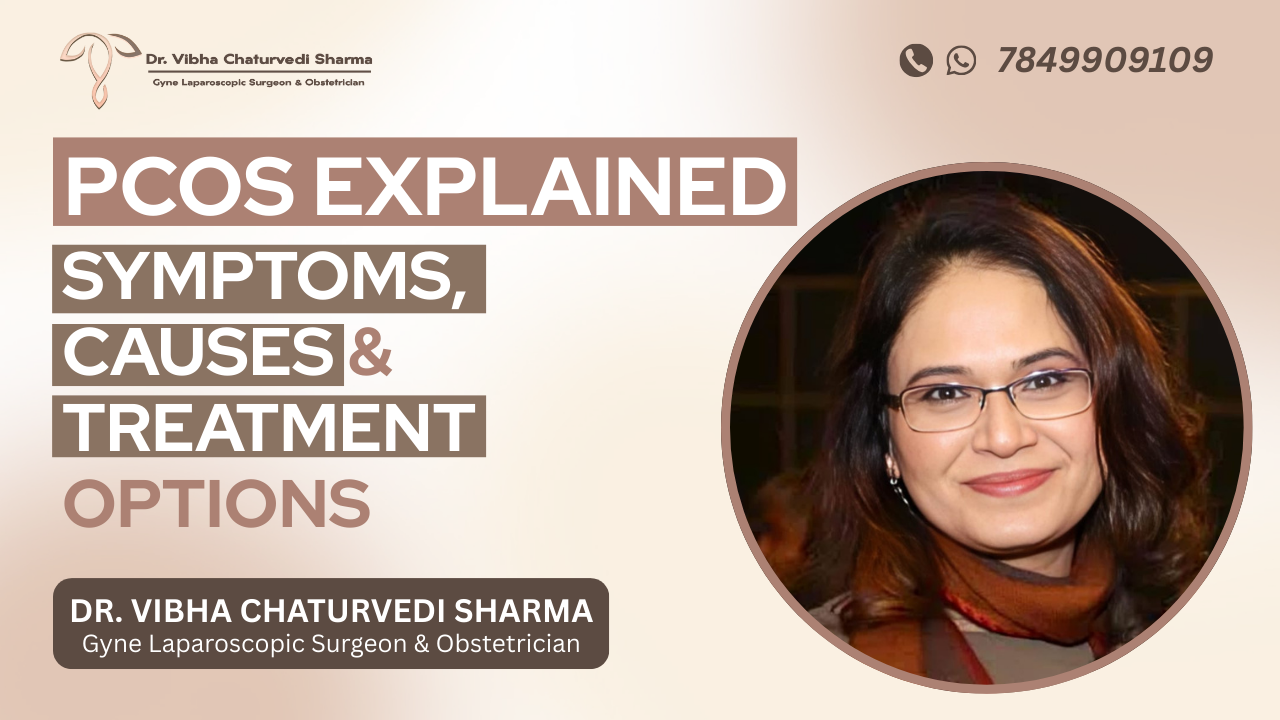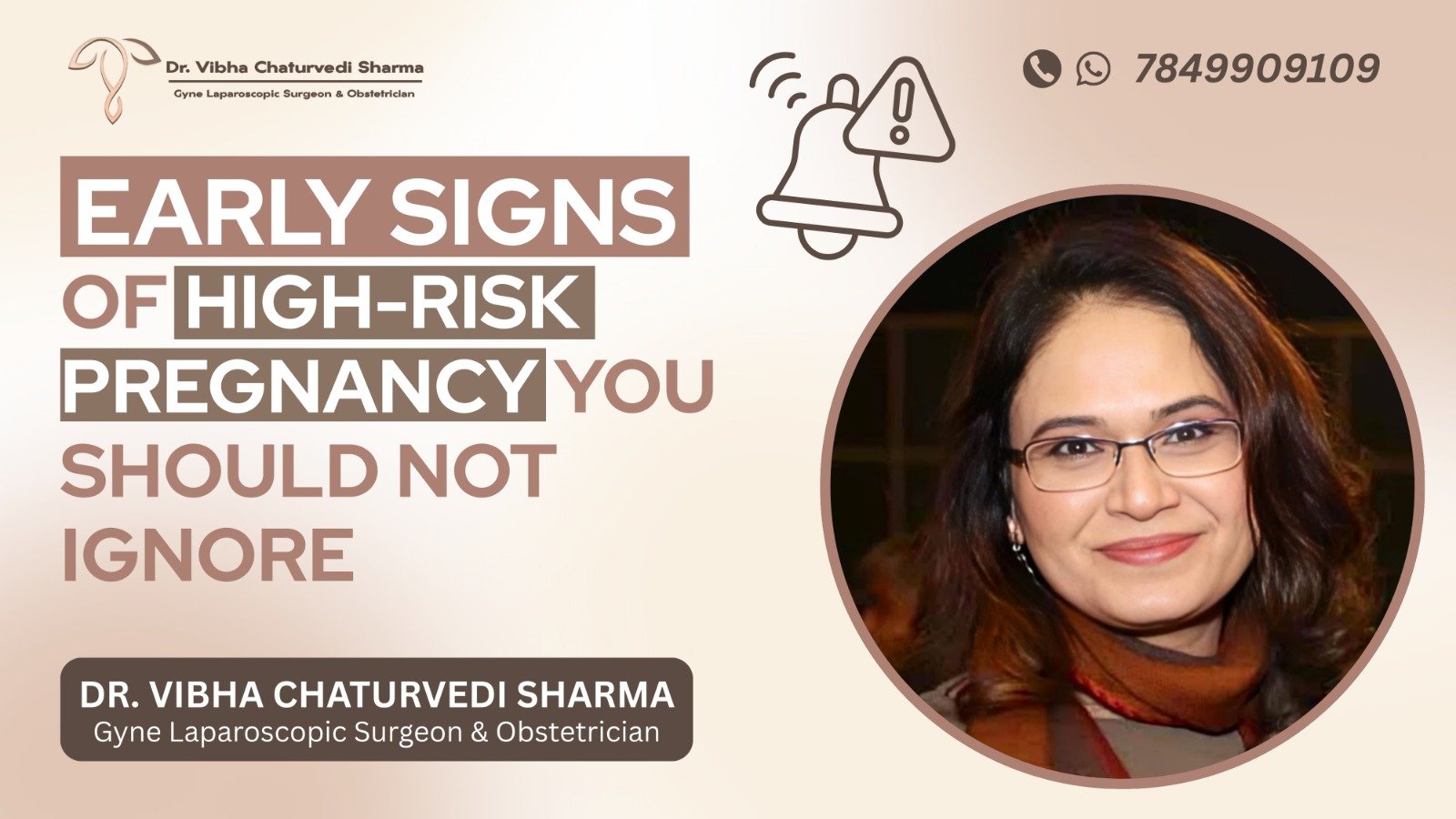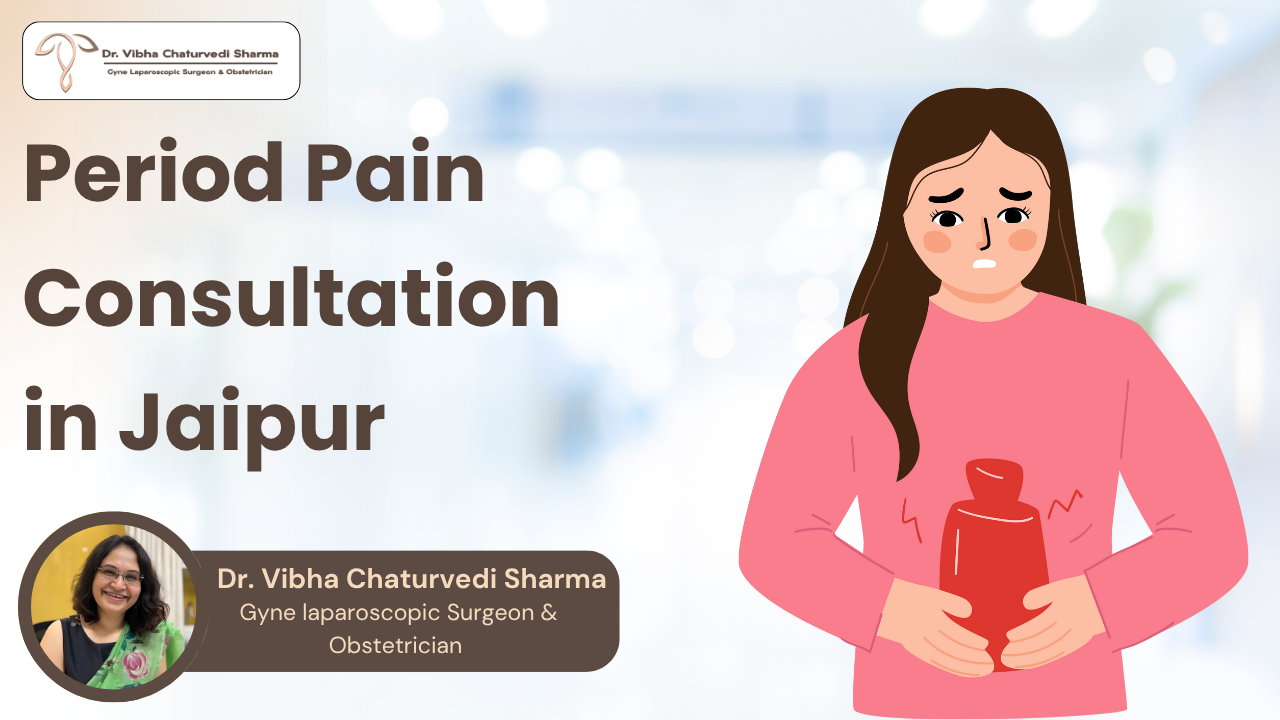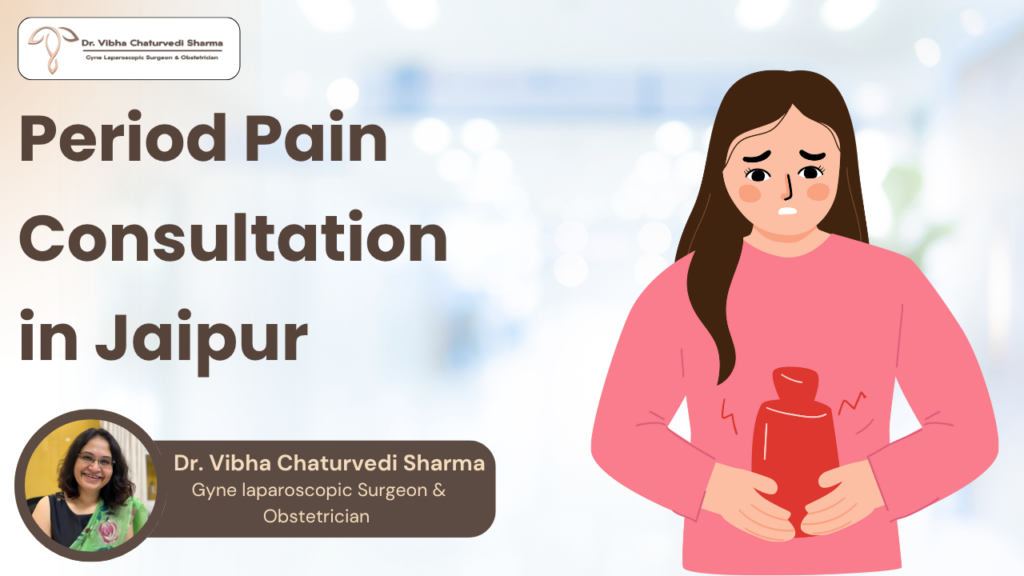
Introduction to Period Pain
Menstrual pain, also known as dysmenorrhea, Period Pain is a common concern for women of all ages. For some, it’s a mild discomfort that’s manageable with over-the-counter medications, while for others, it’s a debilitating pain that disrupts daily life. Understanding the causes and treatment options is key to improving quality of life.
Dr. Vibha Chaturvedi, a leading gynecologist with over 20 years of experience, provides expert guidance and treatment to help women effectively manage period pain.
What is Dysmenorrhea?
Dysmenorrhea refers to the painful cramps experienced during menstruation. It is categorized into two types:
- Primary Dysmenorrhea: Pain without an underlying medical condition, usually beginning in adolescence.
- Secondary Dysmenorrhea: Pain caused by an underlying condition, such as endometriosis or fibroids, and often begins later in life.
Common Symptoms of Period Pain
- Cramping in the lower abdomen
- Pain radiating to the lower back or thighs
- Nausea or vomiting
- Diarrhea or loose stools
- Fatigue and weakness
- Headaches
What Causes Period Pain?
Period pain occurs due to uterine contractions that help shed the uterine lining. However, excessive production of prostaglandins, hormone-like substances, can intensify these contractions, leading to pain.
In secondary dysmenorrhea, the pain is linked to underlying conditions, such as:
- Endometriosis: Uterine-like tissue grows outside the uterus.
- Fibroids: Noncancerous growths in the uterus.
- Pelvic Inflammatory Disease (PID): Infection in the reproductive organs.
- Adenomyosis: Uterine lining grows into the muscular wall.
Risk Factors for Severe Period Pain
- Being under 20 years old
- Family history of painful periods
- Heavy menstrual flow
- Irregular periods
- Smoking or high-stress levels
How is Period Pain Diagnosed?
Dr. Vibha Chaturvedi begins with a thorough evaluation, including:
- Medical History: Questions about symptoms, menstrual cycle, and lifestyle.
- Physical Examination: To check for abnormalities in the pelvic area.
- Diagnostic Tests:
- Ultrasound: Identifies fibroids, cysts, or other conditions.
- Laparoscopy: A minimally invasive procedure to diagnose endometriosis or other issues.
Treatment Options for Period Pain
Treatment depends on whether the pain is due to primary or secondary dysmenorrhea.
1. Home Remedies and Lifestyle Changes
- Heat Therapy: Using a heating pad on the abdomen.
- Regular Exercise: Improves blood flow and reduces prostaglandin production.
- Dietary Adjustments: Reducing caffeine, alcohol, and high-fat foods.
2. Medications
- Pain Relievers: Over-the-counter NSAIDs like ibuprofen.
- Hormonal Birth Control: Regulates periods and reduces prostaglandin levels.
3. Treatment for Underlying Conditions
If secondary dysmenorrhea is diagnosed, treating the root cause is essential:
- Surgery for Fibroids: Myomectomy or hysterectomy.
- Endometriosis Management: Laparoscopic surgery or hormonal therapy.
- Antibiotics: For infections like PID.
When to Consult a Specialist
If period pain is severe or unresponsive to over-the-counter treatments, it’s important to seek medical advice. Consult Dr. Vibha Chaturvedi if you experience:
- Pain lasting beyond the first few days of menstruation.
- Heavy bleeding or passing large clots.
- Symptoms of infection, like fever or unusual discharge.
- Persistent pelvic pain outside of your menstrual cycle.
How to Prevent Period Pain
- Maintain a balanced diet rich in fruits, vegetables, and whole grains.
- Stay hydrated to reduce bloating.
- Practice stress management techniques, such as yoga or meditation.
- Avoid smoking and limit alcohol intake.
Innovative Treatments for Period Pain
With advancements in medical technology, innovative treatments like nerve blocks and non-invasive ultrasound therapy are becoming available for managing severe dysmenorrhea.
Dr. Vibha Chaturvedi stays at the forefront of these developments to provide the best care for her patients.
Understanding the Emotional Impact
Chronic period pain can take a toll on mental health, leading to anxiety or depression. Addressing these concerns through counseling or support groups is an integral part of comprehensive care.
Conclusion
Period pain, though common, shouldn’t disrupt your life. Understanding its causes and exploring tailored treatment options with an experienced gynecologist like Dr. Vibha Chaturvedi can make a significant difference. Whether it’s simple lifestyle adjustments or advanced medical treatments, relief is within reach.
Contact Information
📞 Phone: 78499 09109
📍 Location: SURYA HOSPITALS, C-8, B-7, Sawai Ram Singh Rd, opposite SMS Hospital, Jaipur
